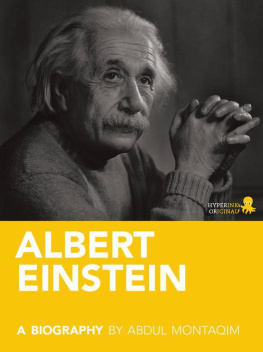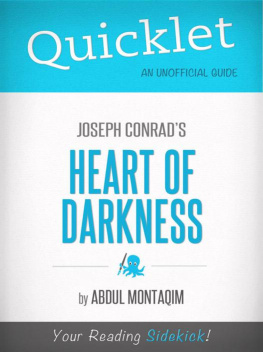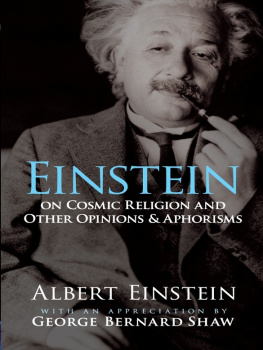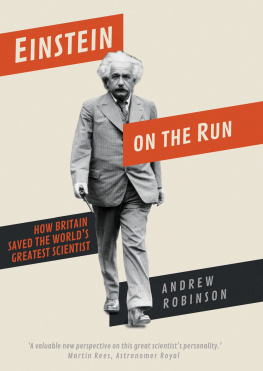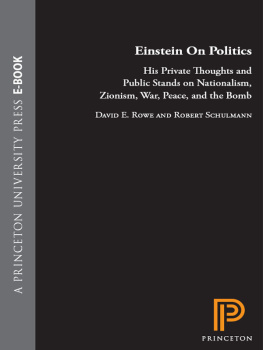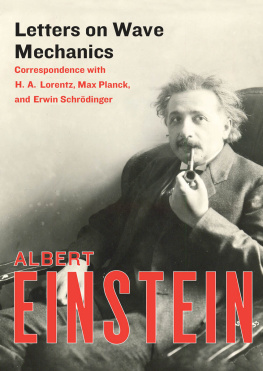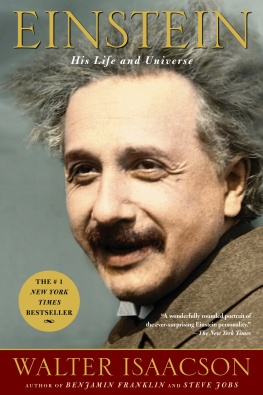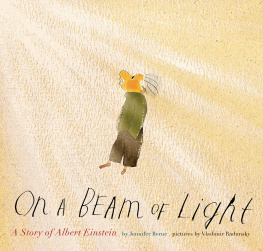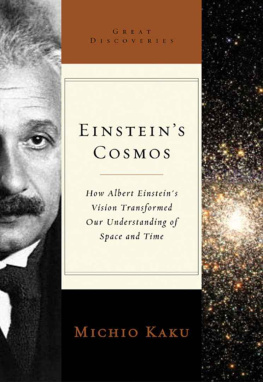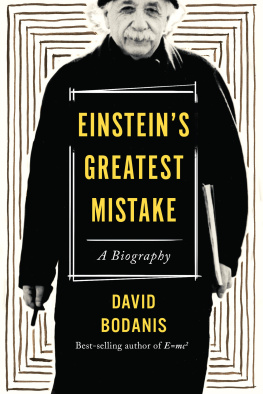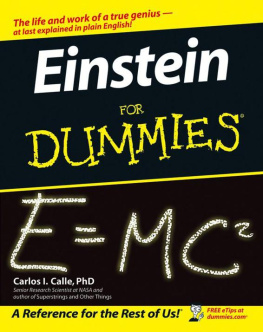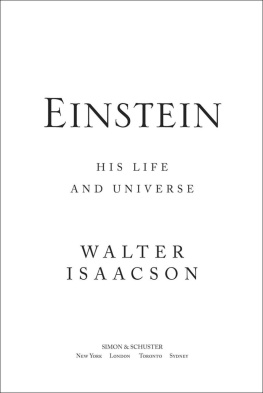Abdul Montaqim - Albert Einstein: A Biography
Here you can read online Abdul Montaqim - Albert Einstein: A Biography full text of the book (entire story) in english for free. Download pdf and epub, get meaning, cover and reviews about this ebook. year: 2012, publisher: Hyperink, genre: Non-fiction. Description of the work, (preface) as well as reviews are available. Best literature library LitArk.com created for fans of good reading and offers a wide selection of genres:
Romance novel
Science fiction
Adventure
Detective
Science
History
Home and family
Prose
Art
Politics
Computer
Non-fiction
Religion
Business
Children
Humor
Choose a favorite category and find really read worthwhile books. Enjoy immersion in the world of imagination, feel the emotions of the characters or learn something new for yourself, make an fascinating discovery.
- Book:Albert Einstein: A Biography
- Author:
- Publisher:Hyperink
- Genre:
- Year:2012
- Rating:4 / 5
- Favourites:Add to favourites
- Your mark:
Albert Einstein: A Biography: summary, description and annotation
We offer to read an annotation, description, summary or preface (depends on what the author of the book "Albert Einstein: A Biography" wrote himself). If you haven't found the necessary information about the book — write in the comments, we will try to find it.
ABOUT THE BOOK
Albert Einstein is regarded by many people as the greatest scientific mind in the history of the world. Why? Well, there are many reasons, but one of the most important is that his theories led directly to the creation of the atom bomb, and with it, the dawn of the nuclear age. Not only did his work in theoretical physicsin particular, his famous e=mc2 equationindicate that it would be possible to build a massively destructive bomb, the like of which had never been seen before, Einstein himself urged the United States government to go ahead and build it.Most historians agree that Germanys invasion of Poland on September 1, 1939, marked the beginning of World War II in Europe. But about one month before that dateon August 2, 1939Einstein, who was living in America at the time, wrote to the then President of the US, Franklin Delano Roosevelt, outlining the ongoing scientific breakthroughsmade by Enrico Fermi and Leo Szilardthat could lead to the creation of extremely powerful bombs of a new type and suggesting that the government should fund, manage and speed up the progress towards such weapons.In the letter, Einstein explained that the key element used in these scientific chain reaction experiments was an element called uranium, which would become critical to the making of the bombs in the immediate future. To that end, he recommended that the US government should give particular attention to securing the supply of uranium ore, particularly as the US had no significant uranium mines of its own. Einstein further pointed out that Germany had stopped exports from the uranium mines it owned in Czechoslovakia, implying that if the US did not develop the new bombs, Germany will.
EXCERPT FROM THE BOOK
By the standards of most scientists, Einstein lived a varied and interesting life, living in several different countries over the course of his 76 years, formulating theories that not only changed the scientific establishment but also transformed the world, and getting married twicethe second time to, Elsa Lwenthal, his first cousin on his mothers side and second cousin on his fathers side.It was with Elsa that he emigrated to the United States in 1933, the year when the Nazis came to power in Germany under the leadership of Adolf Hitler. At that time, Jews were becoming increasingly targetted by the Germans. The Nazi propaganda chief, Joseph Goebbels, declared that Jewish intellectualism is dead, even as he encouraged students to organise mass public burnings of thousands of books, defending their actions as their right to clean up the debris of the past.Einstein was reported to be on a hit list, and it was probably only a matter of time that the Nazis came for knocking for him, or worse, if he had stayed in Germany. But he did not. He emigrated to the US at the age of 54, and stayed there for much of the rest of his life, becoming an American citizen in 1940.Elsa had died several years earlier, in 1936, of heart and kidney problems. And Einstein did not marry again. He and Elsa did not have children together, but Einstein had two sons, Hans and Eduard, and a daughter, Lieserl, from his previous marriage to Mileva Maric.Its unclear what exactly his marital problems were when he was Mileva, but he separated from her in 1914, leaving her and their two sons in Zurich while he lived in Berlin. Its also unclear what happened to their daughter, as no mention is made of her anywhere. During this difficult time in his life, Einstein had asked Mileva for a divorce, but she was reluctant, or unwilling.
Abdul Montaqim: author's other books
Who wrote Albert Einstein: A Biography? Find out the surname, the name of the author of the book and a list of all author's works by series.

